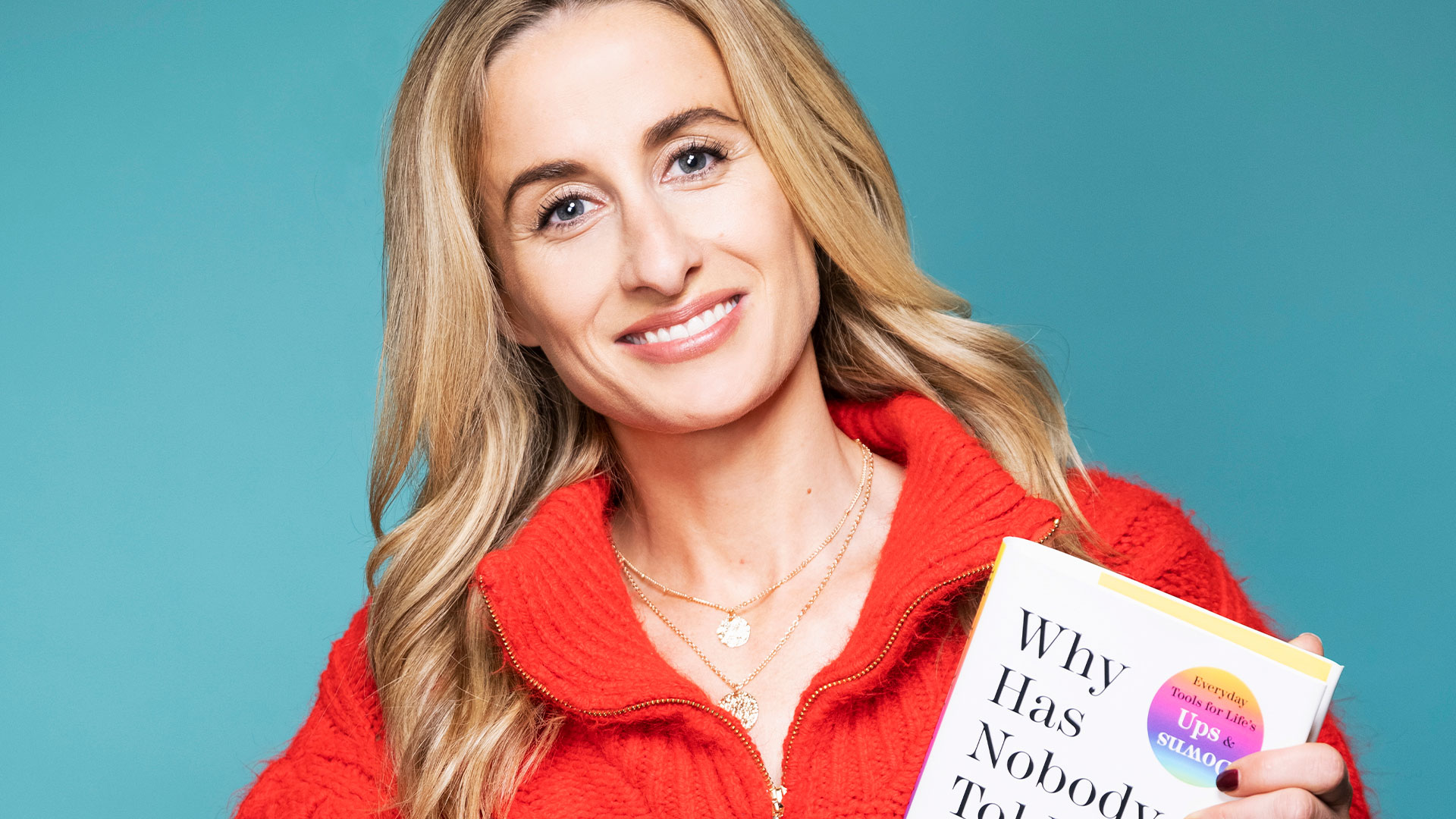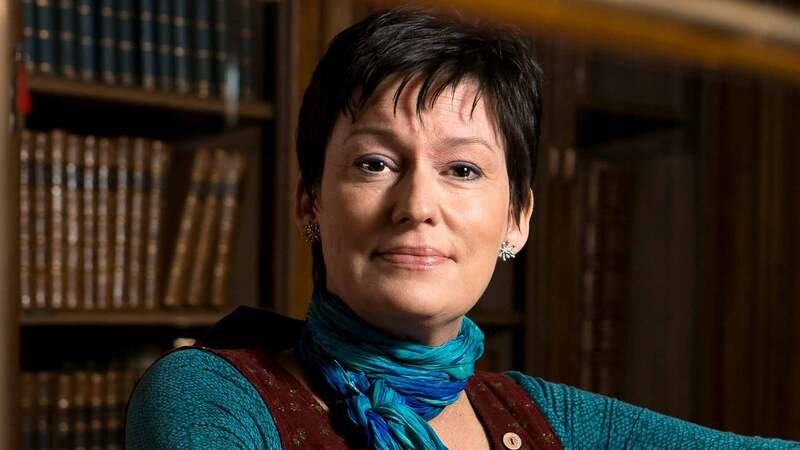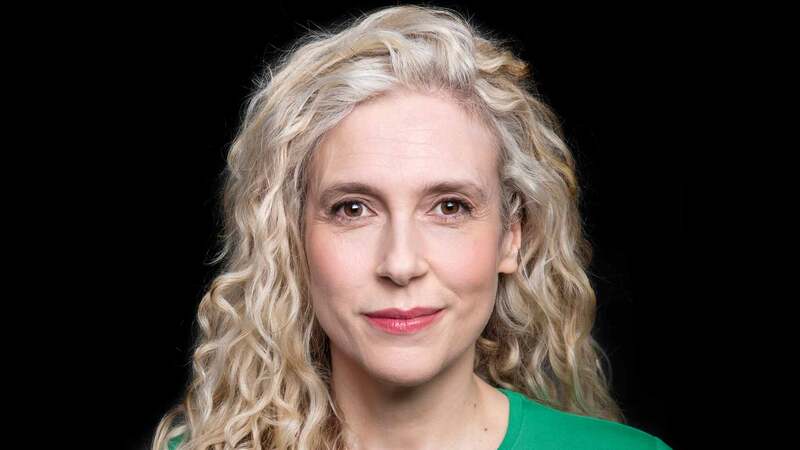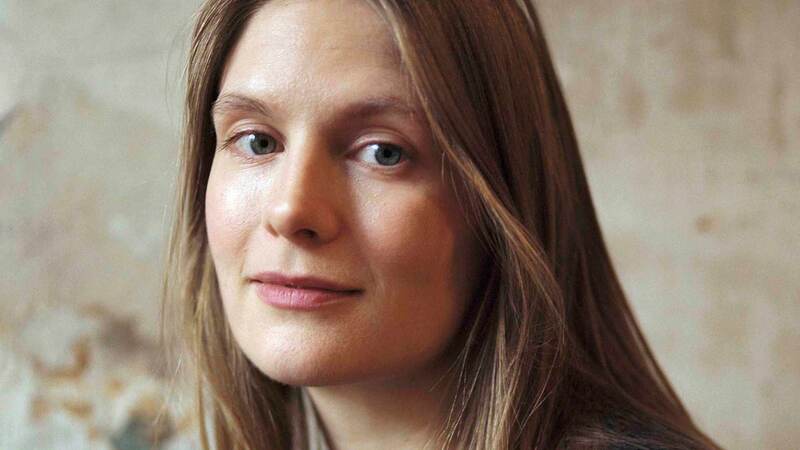You are viewing your 1 free article this month. Login to read more articles.
Dr Julie Smith‘s popularity on TikTok spawned a hit bestseller
Dr Julie Smith‘s popularity on TikTok spawned a hit bestseller—a feat few others on the social media platform have thus far been able to replicate.
BookTok has obviously been a huge boon to many fiction authors, but it is fair to say few TikTok creators have really yet made the jump from the app to a hugely successful book. We are admittedly in very early days—still not even at the crest of the first wave of TikTokkers publishing books—but most thus far have probably not hit the heights that publishers would have wished, given the hefty follower numbers on the platform. Headline, for example, must have been expecting more from “TikTok Auntie” Ann Russell’s How to Clean Everything (4,851 units sold to date through Nielsen BookScan UK); ditto Transworld with Francis Bourgeois’ The Trainspotters’ Notebook (8,362). At the very least these sales figures pale in comparison to the hit rate of the YouTuber-to-author boom of a decade ago, with the likes of Zoe “Zoella” Sugg, Joe “Broella” Sugg, Alfie Deyes and PewDiePie regularly delivering bestsellers.
Again, it’s early days and 2023 will see a raft of TikTok creators’ titles that might break through (see above). But there is a blueprint of how to achieve TikTok creator success: Dr Julie Smith and her work with Penguin Michael Joseph (PMJ). The consultant psychologist became a TikTok sensation during lockdown, sharing bite-size lessons she has learned from the therapy room and quickly amassing a huge audience (she now has 4.3 million followers on the app). Her subsequent book, Why Has Nobody Told Me This Before?, was the non-fiction breakout of 2022, shifting £2.9m through Nielsen BookScan, and in volume terms (333,359 copies) it was the second-bestselling non-fiction title of the year, only exceeded by her PMJ stablemate Jamie Oliver’s One. This was not a one-and-done, either; no massive first-week sales total followed by far diminishing returns, as so often happened with YouTubers. No, Why Has Nobody Told Me This Before? had legs: it chalked up 11 Hardback Non-fiction number ones and was amazingly in the top 20 of that chart for almost 11 solid months after publication.
Smith’s book was also Audible’s most-downloaded UK title last year and—sometimes not the case with personal development titles—it travelled, with RML’s Alexandra Cliff selling translation rights to 41 different territories. Not bad for an author who confesses to a bout of nerves the night before publication day. Smith says: “I was having this conversation with my husband about the worry of publishing a book—hoping for success but weirdly also not wanting people to read it because of the vulnerability of putting yourself out there. I remember saying to him that I just wanted to make sure Penguin wouldn’t be disappointed that they had chosen it. Also, it was Penguin—I’ve been a huge reader all my life and there is this sentiment of being published by them. So that was my aim on publication: making sure they would be happy and hoping that my book wouldn’t be pulped in an Alan Partridge-style way.”
Vulnerability aside, Smith went “hell for leather” to promote the book on her platforms and the traditional media but “after a while it gained its own momentum and it was like a roller-coaster”. She thinks that part of the reason it struck a chord, both in the UK and across the globe, is that “there is this real hunger for understanding the science around mental health—what’s the data actually saying? Is that even relevant to me? And how can I consume it in a way that is easy to understand? I’m not just the writer, I’m my own audience. I’m a busy working mum of three and rarely, unless I’m listening to an audiobook, will I read a book cover-to-cover because of the guilt that comes with sitting down and reading these days. I wanted the book to enable people to access information they need quickly. Also I recognised that if you’re struggling, you don’t want to read 200 pages before you get to the bit that you need. So I wanted the dip-in, dip-out structure to let [the reader] go straight to the problem”.
A New start
Smith joins me on Zoom from her home in Ringwood, the Hampshire market town on the Dorset border just outside the New Forest. Excitingly, she is in front of the familiar bookshelves-and-plants background she uses for most of her TikTok posts, though today it is bare and not as set-designed as in her videos—it’s like seeing Pedro Pascal act against the green screen in those “The Mandalorian” behind-the-scenes outtakes.
I’m not head of the NHS, I’m not Rishi Sunak, and can’t profess to know the numbers and the various dilemmas that they face
She has just inked a further two-book deal with PMJ and says: “While promoting the first book, a lot of people asked about a second. I didn’t want to just put out another for the sake of it. I only wanted to do one if I had something important to say. Over the past year, I was on a bit of a journey but I felt like I had to go back to the [textbooks], keep learning, keep recognising what I didn’t know, discover what is left to learn and where the gaps are. My first book serves a certain purpose, but I feel like there are many more ways to serve people.”
Smith insists that she had “no ambitions to be a public person”. But the ideas for posting videos came after a discussion with her husband Matt, who handles the technical, behind-the-scenes part of the content creation. “I thought that people really shouldn’t have to pay to see someone like me [in the consulting room] in order to find out these things about mental health. I thought we would try a few YouTube videos and they would fizzle out after a few days. But then it clicked with the short-form TikTok content. The engagement really went off like a rocket during lockdown, when a lot of people were online and dealing with difficult issues.”
As she has become a public person, she is frequently called upon to chime in on the state of mental health services in the UK. “I think the hunger for the type of information that I’m offering is a symptom of the fact that whatever else is being offered is not adequate,” she says. “I’m not head of the NHS, I’m not Rishi Sunak, and can’t profess to know the numbers and the various dilemmas that they face. But from my corner of things, having worked in the NHS for 10 years and now being in this position, and seeing how many messages and emails I get every single day from people who are desperate for some sort of mental health care… what we have now is not OK.”
Smith notes the irony of being a mental health advocate on social media, when it can often adversely affect some users’ wellbeing. She says: “This preyed on my mind before I started posting, because I wasn’t really on social media; I had the usual accounts but was pretty inactive. Like a lot of people in my profession, I viewed social media as, if not the enemy, then full of dangers. I thought that I could either sit in my consulting room and complain about what’s going on out there—people accessing misinformation and things that are damaging to them—or I can step out and offer something that’s of good quality, and slightly increase the chances that anyone who is even vaguely vulnerable may come across my content instead of somebody else’s.”











